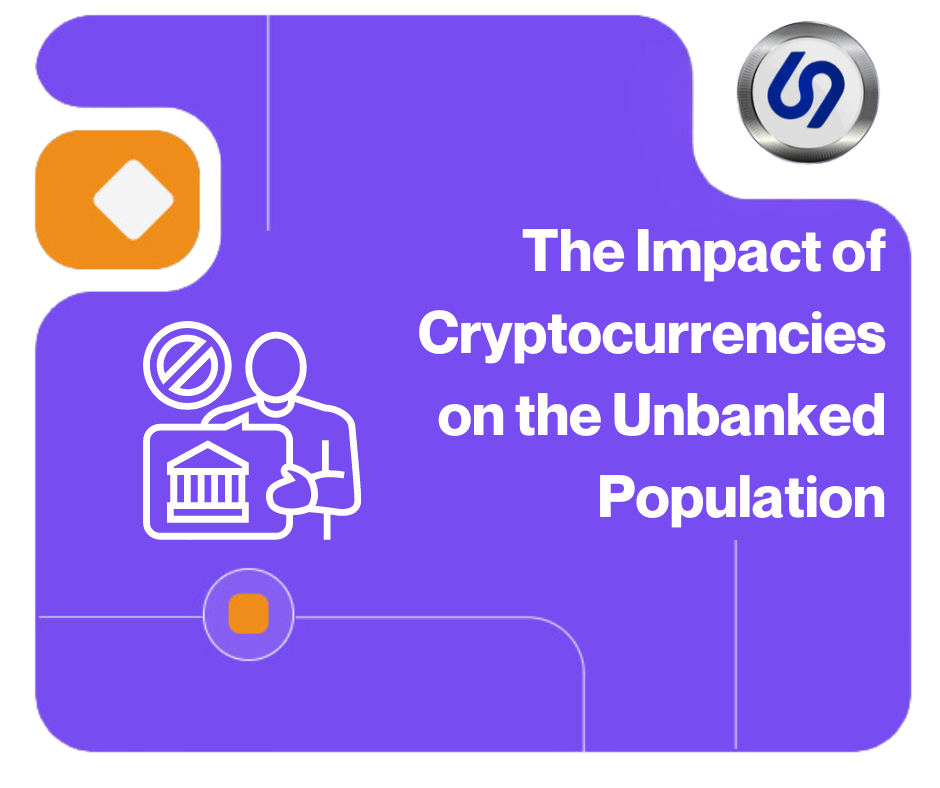
















 The Impact of Cryptocurrencies on the Unbanked Population
The Impact of Cryptocurrencies on the Unbanked Population
Access to financial services remains a significant challenge for millions of people worldwide. According to the World Bank, approximately 1.7 billion adults globally are unbanked, meaning they do not have access to traditional banking systems. Cryptocurrencies have emerged as a powerful tool to bridge this gap, offering financial inclusion to those who have been left out of the conventional banking ecosystem. This blog explores the impact of cryptocurrencies on the unbanked population and how digital currencies are transforming lives.
Lack of Financial Infrastructure:
Many individuals in developing countries live in remote areas without access to banks or financial institutions. This lack of infrastructure makes it difficult for them to open bank accounts, save money, or access credit.
High Fees:
Traditional banking services often come with high fees for account maintenance, transactions, and remittances. These costs can be prohibitive for low-income individuals.
Documentation Requirements:
Opening a bank account typically requires identification documents and proof of address, which many unbanked individuals do not possess. This lack of documentation further excludes them from the financial system.
Economic Instability:
In countries with unstable economies and volatile currencies, the unbanked population struggles to maintain the value of their money and protect their savings from inflation.
Financial Inclusion:
Cryptocurrencies provide an accessible entry point into the financial system. With just a smartphone and internet access, individuals can create a digital wallet and start transacting. This bypasses the need for physical bank branches and extensive documentation.
Lower Transaction Costs:
Cryptocurrency transactions often come with lower fees compared to traditional banking services. This is particularly beneficial for remittances, where high fees can significantly reduce the amount received by beneficiaries. Cryptocurrencies enable cheaper and faster cross-border payments, ensuring more money reaches those in need.
Security and Control:
Cryptocurrencies offer enhanced security features, such as encryption and decentralized networks, which protect users' funds from fraud and theft. Additionally, individuals have full control over their digital wallets, reducing the risk of unauthorized access.
Protection Against Inflation:
In countries with high inflation rates, cryptocurrencies can act as a store of value. Digital currencies like Bitcoin have a fixed supply, making them less susceptible to inflationary pressures compared to fiat currencies. This allows the unbanked to protect their savings from devaluation.
Access to Credit and Financial Services:
Blockchain technology enables decentralized finance (DeFi) platforms, which offer financial services like lending, borrowing, and savings without traditional intermediaries. Through DeFi, unbanked individuals can access credit and financial services, often with more favorable terms.
BitPesa:
BitPesa is a digital payment platform that uses Bitcoin to facilitate cross-border payments in Africa. By leveraging Bitcoin's low transaction fees, BitPesa offers affordable and fast remittance services, helping businesses and individuals save on costs.
BanQu:
BanQu is a blockchain-based platform that provides digital identities and financial services to the unbanked. It enables individuals to build credit histories, access loans, and engage in economic activities, all without a traditional bank account.
Empowerment Through Education:
Initiatives like the Binance Academy and Bitcoin for Good provide educational resources to teach individuals about cryptocurrencies and blockchain technology. By increasing financial literacy, these programs empower the unbanked to make informed financial decisions.
Volatility:
Cryptocurrencies are known for their price volatility, which can be a risk for individuals relying on them as a store of value. Stablecoins, which are pegged to stable assets like fiat currencies, offer a solution by providing price stability.
Regulatory Environment:
The regulatory landscape for cryptocurrencies varies by country. Clear and supportive regulations are essential to ensure the safe and legal use of digital currencies for financial inclusion.
Technological Barriers:
While smartphone penetration is increasing, some unbanked individuals may still lack access to the necessary technology and internet connectivity. Addressing these barriers is crucial for widespread adoption.
Cryptocurrencies have the potential to transform the lives of the unbanked population by providing access to financial services, reducing transaction costs, and protecting against inflation. By leveraging blockchain technology, digital currencies offer a secure and inclusive alternative to traditional banking systems. As the adoption of cryptocurrencies continues to grow, it is essential to address challenges such as volatility, regulation, and technological barriers to ensure that the benefits reach those who need them the most.
The impact of cryptocurrencies on the unbanked population is profound, offering a pathway to financial inclusion and economic empowerment. By staying informed and supporting initiatives that promote the use of digital currencies for social good, we can contribute to a more inclusive and equitable financial system.